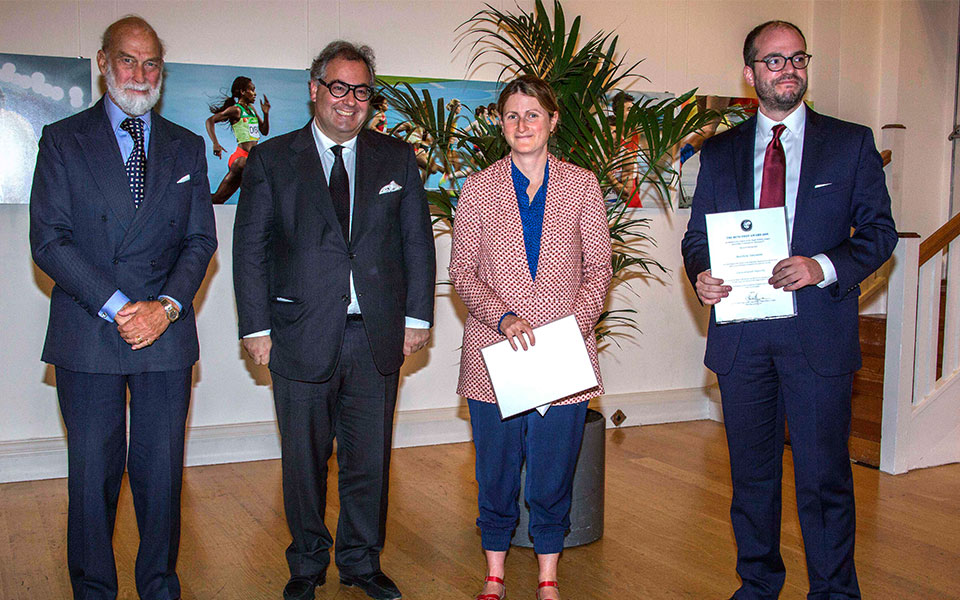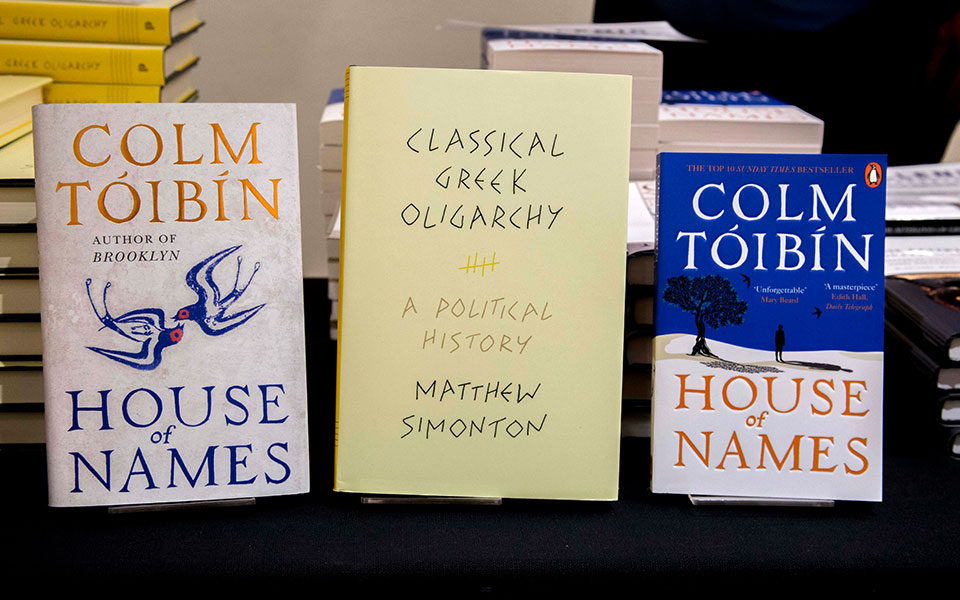It is said that Sir Steven Runciman fell in love with the Byzantine Empire as a young man in 1929, while on the deck of the family yacht. Looking out to Monemvasia on the eastern coast of the Peloponnese, he saw the castle town’s walls and churches from afar and felt a strong affinity toward Greece.
This affinity lasted his entire life and compelled him to study Byzantine history and bring it out of international obscurity. He taught, wrote and forged friendships with important Greek literary figures, such as Giorgos Seferis and Angelos Sikelianos, becoming an important bridge between Greek and British culture.
Today, one of the most respected awards in this field carries his name.
The Runciman Award was conceived in 1986 by the Anglo-Hellenic League, which was founded in 1913. In charge of this association is an individual particularly loved in Greece: John Kittmer, the former British ambassador to Athens, who was recently succeeded by Kate Smith.
The Runciman Award aims to showcase English-speaking publications that concern some aspect of Greece or the world of Hellenism. Past winners include highly respected writers such as historian Mark Mazower and Roderick Beaton, Koraes Professor of Modern Greek and Byzantine History, Language and Literature at King’s College London. The award’s prestige is also reflected in the caliber of its committee. Led by Dr John Penney (Wolfson College), the panel included Dionysis Kapsalis (director of the National Bank of Greece Cultural Foundation), Dr Stavroula Pipyrou (lecturer in the Department of Social Anthropology at St Andrews University) and Peter Frankopan (professor of International History at Oxford).

This year the judges had the difficult task of picking a winner from among 47 entries, with publications ranging from academic research to books aimed at wider audiences. The short-listed nominees were announced in April and the prizewinning ceremony took place last month at the Hellenic Center in London. The award was shared between two publications: “Classical Greek Oligarchy” by Matthew Simonton (Princeton University Press) and “House of Names” by Colm Toibin (Penguin/Viking). The awards were presented by Prince Michael of Kent, alongside Dimitris Paraskevas of Elias Paraskevas Attorneys, which provided the 10,000-pound award.
“This year’s competition was remarkable, with excellent books submitted and short-listed. The strong field reflects the high quality of current writing in English about Hellenism and its many guises,” Kittmer said.
“The fascination of Greece, Greek history and Greek culture evidently remains undimmed, amongst scholars and laypersons alike, as this year’s splendidly varied submissions for the Runciman Award clearly attest,” said Penney.
“Given the overall quality of the field, all the short-listed books earned warm congratulations for their authors, and the judges had a hard time deciding between them… We decided to divide the prize this year between two books of quite different kinds,” the panel’s head added.
Other notable guests at the ceremony were Greek diplomat Dimitris Caramitsos-Tziras, High Commissioner of Cyprus to the United Kingdom of Great Britain and Northern Ireland Euripides Evriviades, Archbishop Gregory of Thyateira and Great Britain, and Lord and Lady Butler of Brockwell. Former director of the British Museum Neil MacGregor was one of the speakers. The event was attended by British Hellenophiles and members of the Greek and Cypriot diaspora in London.












